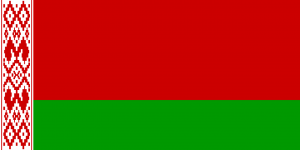Language/Belarusian/Vocabulary/Idiomatic-Expressions
Hi Belarusian learners! 😊
In this lesson, we will learn some of the most common idiomatic expressions in Belarusian. Idioms are phrases that have a figurative meaning, which is different from the literal meaning of the words. They are used in everyday conversations and can be quite tricky to understand.
Introduction
Idiomatic expressions are an important part of any language. They are used to express emotions, feelings, and ideas in a more vivid way. In Belarusian, there are many idiomatic expressions that are used in everyday conversations.
To improve your Belarusian Vocabulary, you can also use the Polyglot Club website. Find native speakers and ask them any questions!
Common Idiomatic Expressions
Here are some of the most common idiomatic expressions in Belarusian:
| Belarusian | Pronunciation | English Translation |
|---|---|---|
| На дзень да ноч | Na dzen' da noch | Literal translation: Day and night; Figurative meaning: All the time |
| На вечар | Na vechár | Literal translation: On the evening; Figurative meaning: At the last minute |
| На лета | Na léta | Literal translation: On the summer; Figurative meaning: Easily |
| На паўноч | Na paunóch | Literal translation: On the night; Figurative meaning: Suddenly |
| На зараду | Na zarádu | Literal translation: On the morning; Figurative meaning: Early |
| На паўдзень | Na paudzén' | Literal translation: On the day; Figurative meaning: Immediately |
Examples
Let's look at some examples of how these idiomatic expressions can be used in context:
- Person 1: Я зрабіў яго на паўноч (Ya zrabíŭ yaḡo na paunóch) (Literal translation: I did it on the night; Figurative meaning: I did it suddenly)
- Person 2: Ты зрабіў яго на паўноч? Заўсёды ты зрабіў яго на вечар! (Ty zrabíŭ yaḡo na paunóch? Zavsiodzy ty zrabíŭ yaḡo na vechár!) (Literal translation: You did it on the night? Always you did it on the evening!; Figurative meaning: You did it suddenly? You always do it at the last minute!)
- Person 1: Я зрабіў яго на лета (Ya zrabíŭ yaḡo na léta) (Literal translation: I did it on the summer; Figurative meaning: I did it easily)
- Person 2: Ты зрабіў яго на лета? Заўсёды ты зрабіў яго на зараду! (Ty zrabíŭ yaḡo na léta? Zavsiodzy ty zrabíŭ yaḡo na zarádu!) (Literal translation: You did it on the summer? Always you did it on the morning!; Figurative meaning: You did it easily? You always do it early!)
- Person 1: Я зрабіў яго на дзень да ноч (Ya zrabíŭ yaḡo na dzen' da noch) (Literal translation: I did it on the day and night; Figurative meaning: I did it all the time)
- Person 2: Ты зрабіў яго на дзень да ноч? Заўсёды ты зрабіў яго на паўдзень! (Ty zrabíŭ yaḡo na dzen' da noch? Zavsiodzy ty zrabíŭ yaḡo na paudzén'!) (Literal translation: You did it on the day and night? Always you did it on the day!; Figurative meaning: You did it all the time? You always do it immediately!)
Conclusion
We hope this lesson has helped you to understand some of the most common idiomatic expressions in Belarusian. Remember, practice makes perfect, so try to use these expressions in your conversations with native speakers.
➡ If you have any questions, please ask them in the comments section below.
➡ Feel free to edit this wiki page if you think it can be improved. 😎
Related Lessons

